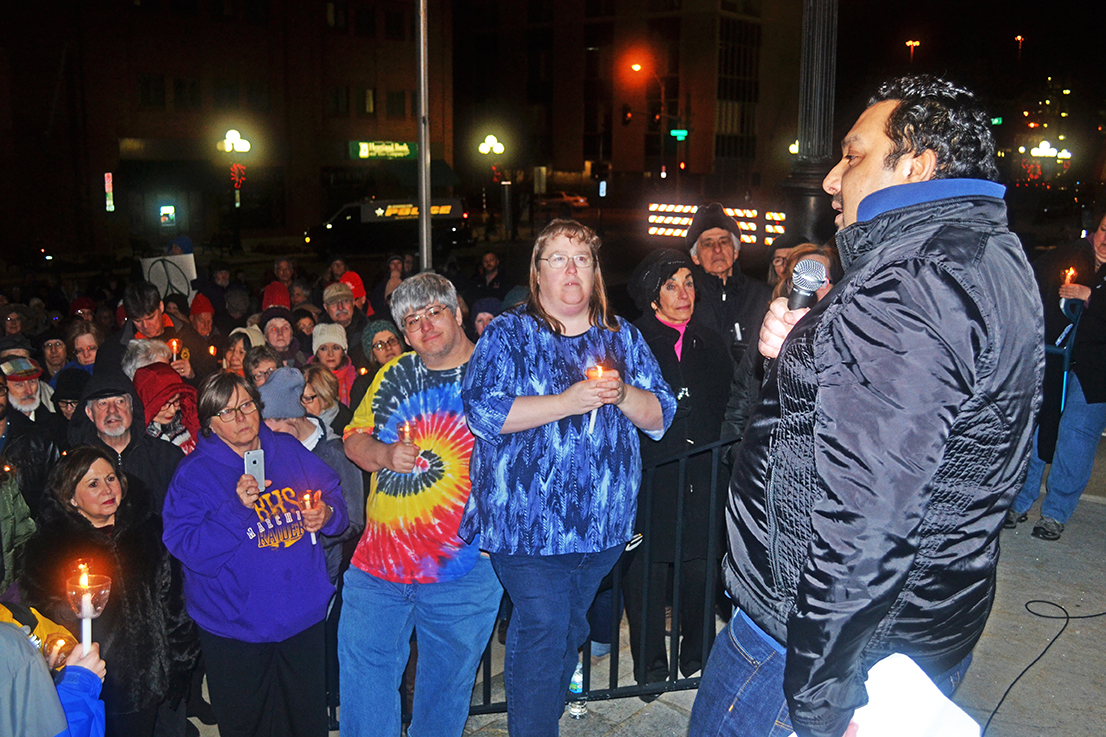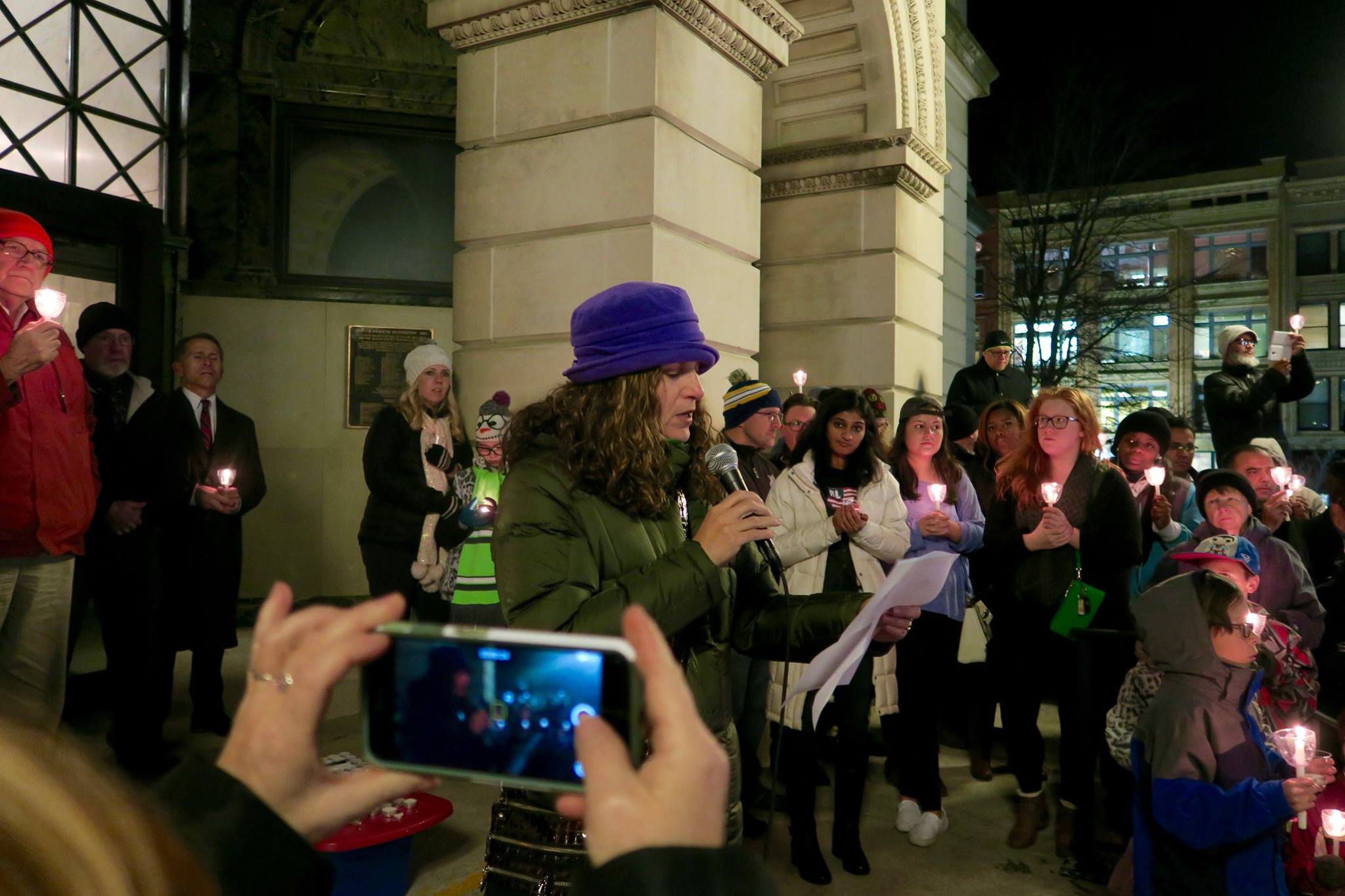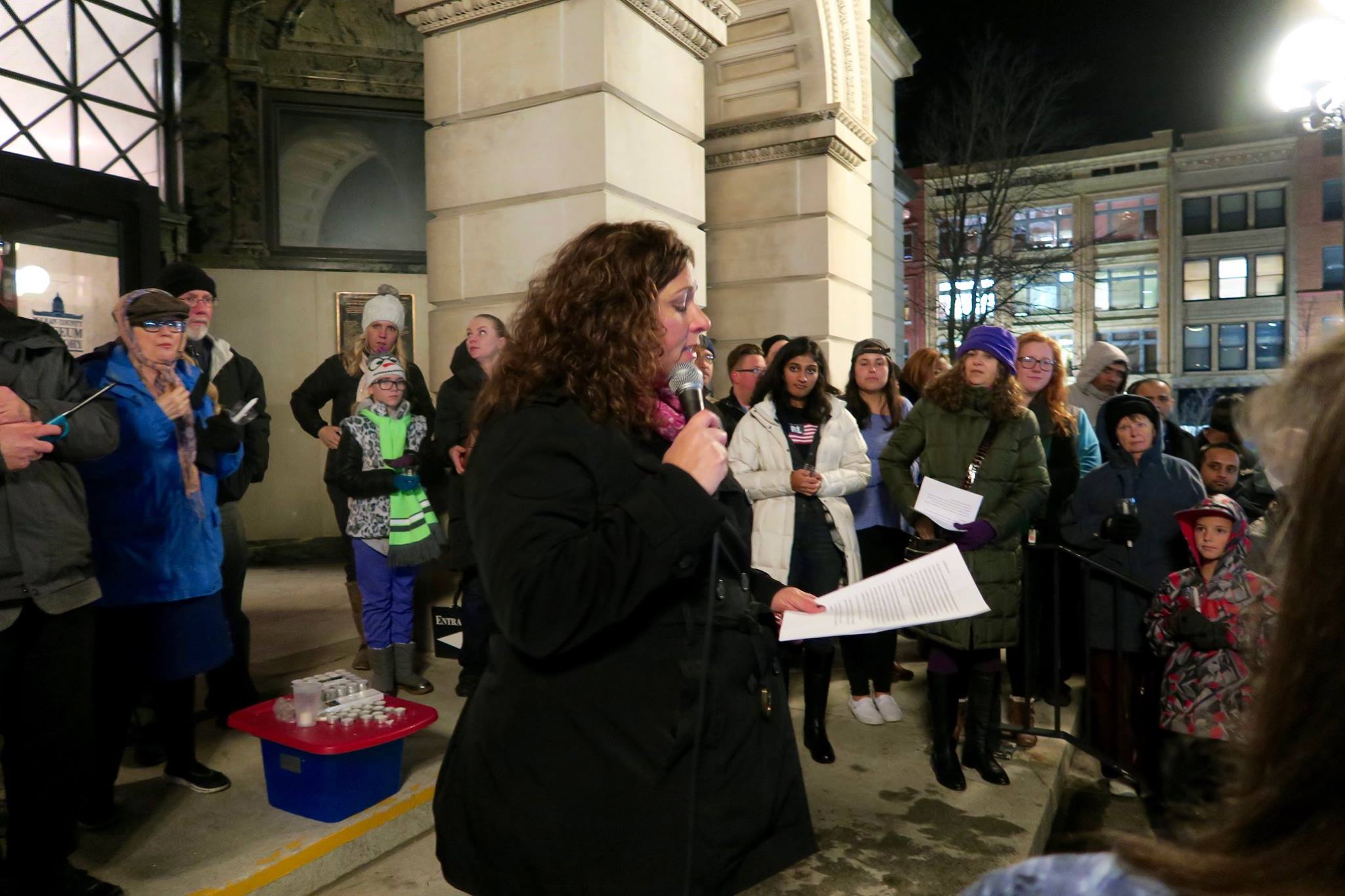The Pantagraph/WJBC/WGLT/NIOTBN
Residents came together from the community to remember the recent victims of violence and racism throughout the country on Monday night, as Mt. Pisgah Baptist Church Rev. Frank McSwain led the gathering in the rallying call, “United, we stand; divided, we fall.”
Moses Montefiore Rabbi Rebecca Dubowe and Imam Abu Emad AL-Talla chat with Bloomington Police Chief Brendan Heffner prior to the vigil.
Leaders from five area religious denominations came together at Bloomington First Christian Church for what is becoming a hallmark of Bloomington-Normal’s Not In Our Town efforts -- a bringing together of all faiths and even those questioning their faith. The prayer service included a reading of names, a lighting of candles, and a moment of silence for victims and the families of shooting victims in Dallas, Minnesota, and Louisiana.
"If we don't start living together as people, I promise we are already dead as a community," McSwain warned.
The vigil included chanting, or a Sholka (Song) to bring in light by local Hindu Priest Divaspathi Bhat. Imam Abu Emad AL-Talla of the Bloomington mosque Masjid Ibrahim provided a meditation on light and the service included a later reference to the Martin Luther King quote, "Darkness cannot drive out darkness. Only light can drive out darkness," while Rabbi Rebecca Dubowe of the Moses Montefiore Temple in Bloomington issued a call to action which could be different for each person -- "We can't just stand here after this night. Think about what you can do to make a difference in people's lives."
Imam Abu Emad and Mt. Pisgah Baptist Church Senior Past Frank McSwain join in a gesture of solidarity.
First Christian Senior Pastor Jim Warren, the father of a large multicultural family, said he's tired of holding vigils and rallies. "I'm tired of us saying we are going to do something and then we don't." He suggested, "reach out to those who are different from us. Build a community of compassion."
“We really need to see each other as human beings,” said Mike Matejka from Not In Our Town . “That’s people in the community, that’s people of diverse background, that’s our law enforcement. There is so much tension in our nation right now, this is an opportunity to come together in our diversity and say we’re all human, we all support each other, we need each other to heal .”
“It is really beginning to seem that way, that we can’t find civil ways to discourse,” added Anne Libert, and retired teacher from Unit 5 and Not In Our Town volunteer. “We seem to want to attack the other and blame the other, no matter who the other is.”
Bloomington Police Chief Brendan Heffner said he was heartened by the turn out at First Christian Church and the standing ovation given officers there, but he said the people who need to hear the call for unity, empathy, and tolerance were likely not there to hear it. The challenge, he says, is reaching that group. Heffner is interviewed in an upcoming Twin Cities Stories blog article, along with local NAACP head Quincy Cummings.
Bill Kellett of Normal said he came because he needed reassurance that something like the police shootings in Dallas, Texas, would not happen here. “I know our town is different and I can’t see that happening here,” he said. “Yet, I’m glad that we have people in this community who care enough that show that we won’t tolerate that kind of hatred here.”
Sam Ridgway of Bloomington said people need events like this where they could gather peacefully.
“I want to be around people who are committed to making this area a better place,” he said. “I am thankful that we are a smaller community and can have something like this in a church, rather than downtown near a courthouse where it’s in an open area and you are a little scared.”
Janet Merriman of Bloomington argued “people are putting their lives on the line just by going out and protesting, but here, we are letting people know that we see what’s going on in the world and we aren’t going to let it happen here.”
“Brothers and sisters, whatever they are. Black, white, tall, short, rich, poor. They are brothers,” said Imam Abu Emad AL-Talla.
“To claim light in darkness, to remember the lives and potential that have been lost as a result of violence against our brothers and sisters,” NIOTBN Faith and Outreach Chairman and First Christian Associate Minister Kelly Becker of First Community Christian Church maintained. “And to look forward to a different future for our neighborhoods, our community and our nation.”





























